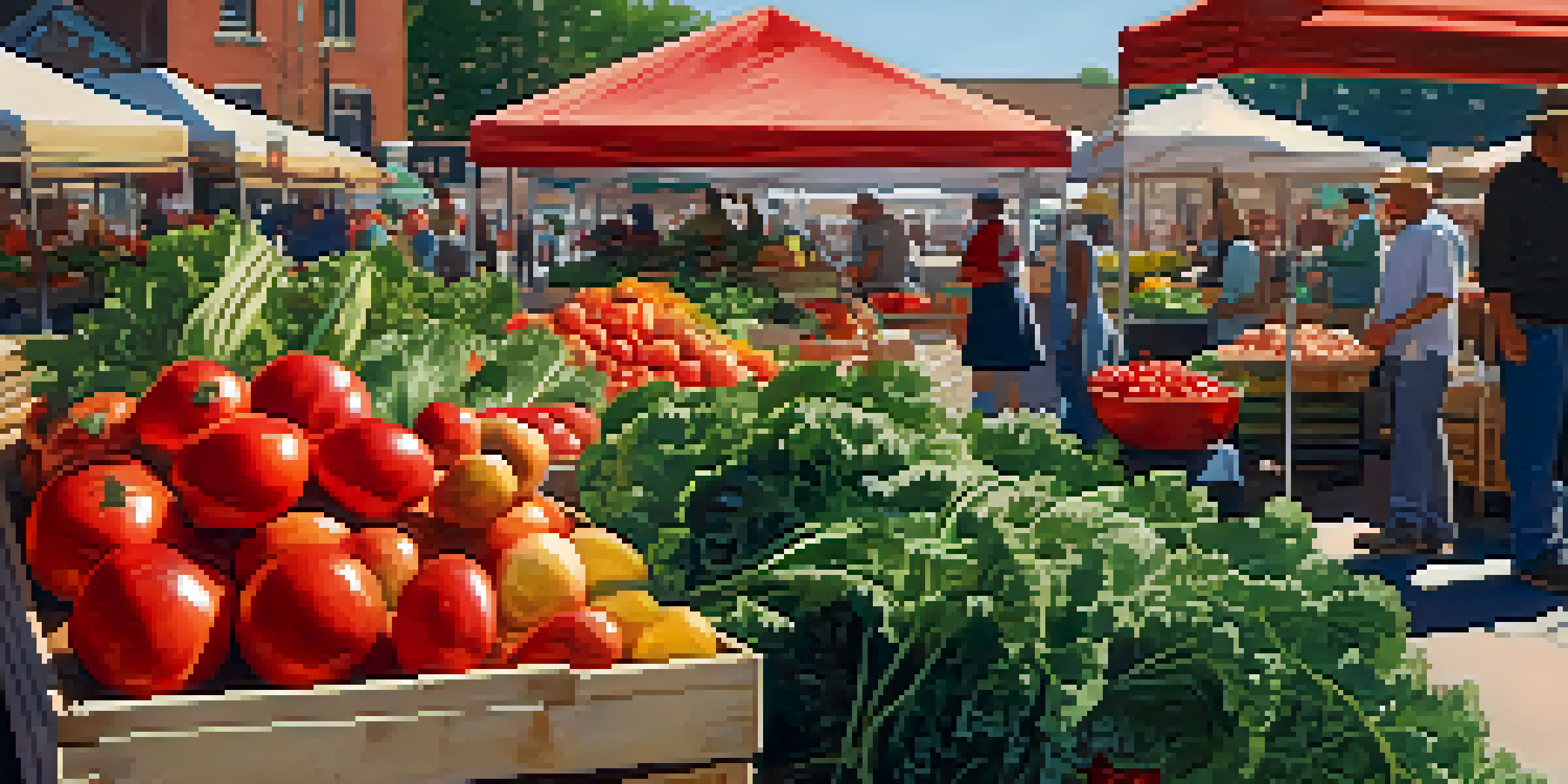The Impact of Local Ingredients on Vegan Nutrition

Understanding Vegan Nutrition: The Basics
Vegan nutrition focuses on plant-based foods, excluding all animal products. This diet can be rich in vitamins, minerals, and antioxidants if well-planned. Key nutrients like protein, iron, and B12 must be carefully sourced to avoid deficiencies. Understanding these basics is essential for anyone considering a vegan lifestyle.
The Importance of Local Ingredients in Vegan Diets
Local ingredients are those grown and harvested within a specific region. They are often fresher and more nutrient-dense than imported foods, contributing to better health. By choosing local, vegans can support their community and reduce their carbon footprint. This creates a sustainable cycle that benefits both the environment and local economies.
Vegan Nutrition Needs Careful Planning
Key nutrients like protein, iron, and B12 need to be carefully sourced to prevent deficiencies in a vegan diet.
Nutrient Density: Local vs. Imported Ingredients
Nutrient density refers to the amount of essential nutrients per calorie in a food item. Local ingredients tend to be harvested at peak ripeness, maximizing their nutrient content. In contrast, imported produce may lose nutrients during transport and storage. Therefore, opting for local can significantly enhance the nutritional value of a vegan diet.
Seasonal Eating: A Key to Vegan Wellness
Eating seasonally means consuming foods that are harvested at their natural peak. This practice not only ensures the freshest ingredients but also aligns with our body's needs throughout the year. For instance, root vegetables in winter provide hearty sustenance, while summer fruits offer hydration and vitamins. Seasonal eating can make vegan meals more vibrant and satisfying.
Local Ingredients Enhance Nutrition
Choosing local ingredients can maximize nutrient density and support community health while reducing carbon footprints.
Building a Balanced Vegan Plate with Local Foods
A balanced vegan plate typically includes a variety of food groups: grains, legumes, vegetables, and fruits. Incorporating local ingredients into each group can enhance flavors and nutritional value. For example, using locally sourced beans can provide essential protein and fiber. This approach makes meals not only healthier but also more connected to the community.
The Environmental Benefits of Choosing Local Ingredients
Choosing local ingredients reduces the need for long-distance transportation, which can significantly decrease carbon emissions. By supporting local farmers, vegans contribute to sustainable agricultural practices and biodiversity. This connection fosters a sense of community and encourages responsible consumption. Ultimately, it's a win-win for both the environment and personal health.
Seasonal Eating Boosts Vegan Meals
Eating seasonally ensures fresh, vibrant ingredients that align with our body's needs throughout the year.
Challenges of Sourcing Local Ingredients
While sourcing local ingredients has many benefits, there can be challenges such as seasonality and availability. Some regions may lack variety or specific ingredients year-round, making it difficult for vegans to maintain diversity in their diet. Additionally, local ingredients may sometimes be pricier than mass-produced options. However, with creativity and flexibility, these challenges can be overcome.
Incorporating Local Ingredients into Vegan Recipes
Incorporating local ingredients into vegan recipes can be both fun and rewarding. Start by exploring local farmers' markets to discover seasonal produce. Experiment with recipes that highlight these ingredients, like a fresh vegetable stir-fry or a seasonal fruit salad. By doing so, you not only enhance your meals but also celebrate the flavors of your community.